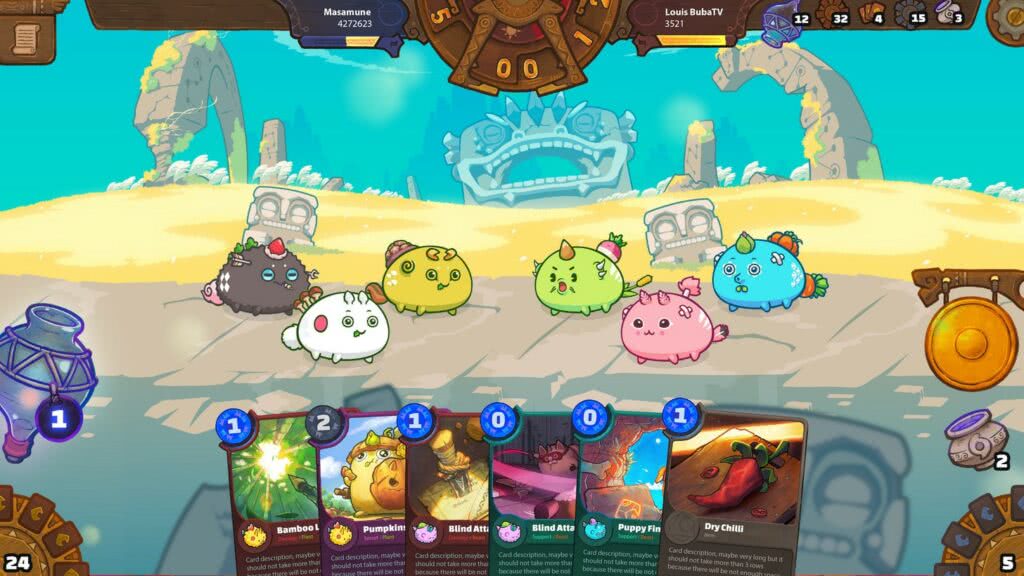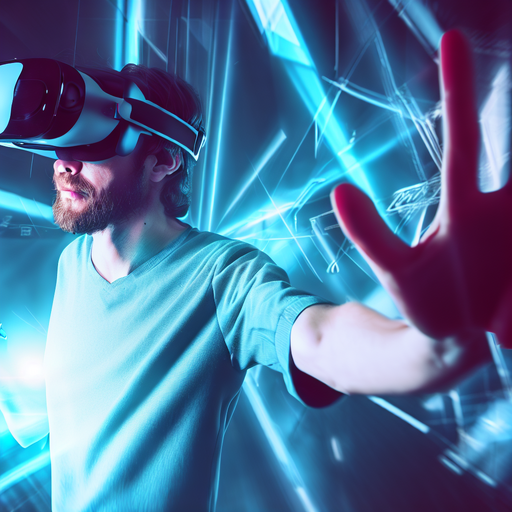The gaming landscape has undergone significant transformations over the past few decades, driven by technological advancements and an increasingly diverse audience. Today, gaming is a multi-billion-dollar industry, with numerous platforms, genres, and business models catering to a wide range of players. As technology continues to advance, the gaming industry must adapt and innovate to stay relevant and meet the ever-changing demands of players. In this article, we will explore some of the most significant trends and innovations in the gaming landscape, highlighting how technology is shaping the future of gaming.
Development in bullet points:
Virtual Reality (VR) and Augmented Reality (AR):
- VR and AR have emerged as groundbreaking technologies that immerse players in highly realistic and interactive gaming experiences.
- High-quality VR headsets, such as the Oculus Rift and HTC Vive, provide unparalleled immersion by tracking head and body movements and translating them into in-game actions.
- AR games, like Pokémon GO and Harry Potter: Wizards Unite, blend the digital and physical worlds by overlaying game elements onto the real world through smartphone cameras.
- The future of VR and AR gaming lies in improved hardware, more intuitive controls, and the development of compelling gaming experiences that take full advantage of these immersive technologies.
Cloud Gaming:
- Cloud gaming allows players to stream games directly to their devices from powerful servers, eliminating the need for dedicated gaming hardware.
- Services like Google Stadia, NVIDIA GeForce Now, and Xbox Cloud Gaming offer a wide selection of games on-demand, with minimal latency and high-quality graphics.
- Cloud gaming can potentially democratize access to high-quality gaming experiences, making them accessible to a broader audience across various devices, including smartphones, tablets, and low-end PCs.
- As internet connectivity and server infrastructure improve, cloud gaming is expected to become increasingly prevalent, reshaping the gaming landscape and challenging traditional hardware-based business models.

Blockchain and Crypto Gaming:
- Blockchain technology is revolutionizing the gaming industry by enabling new monetization models, digital asset ownership, and decentralized gaming experiences.
- Crypto games, such as CryptoKitties and Axie Infinity, allow players to collect, trade, and breed unique digital assets, with real-world value tied to cryptocurrency.
- Decentralized gaming platforms, like The Sandbox and Decentraland, empower players to create, share, and monetize user-generated content in virtual worlds built on blockchain technology.
- As blockchain and cryptocurrency adoption continues to grow, the gaming industry is likely to see more innovative applications of this technology, from decentralized game development to in-game economies and tokenized digital assets.

The Metaverse:
- The metaverse refers to a collective virtual space where users can interact, socialize, and participate in various activities, blurring the lines between gaming, social media, and digital economies.
- Popular games like Fortnite, Roblox, and Minecraft have already laid the groundwork for the metaverse, offering players vast virtual worlds to explore, create, and engage with others.
- With the advent of VR, AR, and blockchain technologies, the metaverse is poised to become a more immersive and interconnected digital universe, providing new opportunities for gaming, commerce, and social interaction.
- As the concept of the metaverse gains traction, we can expect to see more games and platforms adopting this vision, creating a new frontier for gaming and digital experiences.
Artificial Intelligence (AI) and Machine Learning:
- AI and machine learning are transforming the gaming landscape by enabling more sophisticated game design, dynamic gameplay, and personalized experiences.
- Advanced AI algorithms can generate procedurally-generated content, such as levels, characters, and quests, creating virtually limitless gameplay possibilities and replay value.
- Machine learning techniques can be used to analyze player behavior and adapt gameplay in real-time, providing tailored experiences that cater to individual play styles and preferences.
- As AI and machine learning technologies continue to advance, we can expect to see even more innovative applications in game development, from smarter NPCs and enemies to dynamic storytelling and adaptive difficulty settings.
Cross-Platform Gaming and Cross-Play:
- Cross-platform gaming enables players to access their favorite games across various devices, from PCs and consoles to smartphones and tablets, offering more flexibility and convenience.
- Cross-play allows gamers to play together regardless of the platform they are using, fostering larger and more inclusive gaming communities.
- Game developers are increasingly adopting cross-platform development tools, such as Unity and Unreal Engine, to streamline production and ensure compatibility across different devices.
- As the gaming industry becomes more interconnected, cross-platform gaming and cross-play will likely become the norm, providing players with seamless experiences and greater opportunities for social interaction.
5G and Mobile Gaming:
- The advent of 5G technology promises faster internet speeds, lower latency, and improved connectivity, which can significantly enhance mobile gaming experiences.
- 5G can potentially unlock new possibilities for mobile gaming, such as real-time multiplayer, cloud gaming, and more demanding games that require high-quality graphics and processing power.
- As mobile devices become increasingly powerful and ubiquitous, mobile gaming is expected to grow in popularity and sophistication, rivaling traditional gaming platforms.
- The continued rollout of 5G networks worldwide will likely have a profound impact on the gaming industry, making high-quality gaming experiences accessible to a broader audience and driving innovation in mobile game development.
Conclusion:
The gaming landscape is in a constant state of evolution, shaped by the rapid pace of technological advancements and an increasingly diverse and demanding audience. As we have explored in this article, various trends and innovations, such as VR, AR, cloud gaming, blockchain, the metaverse, AI, cross-platform gaming, and 5G, are transforming the gaming industry and paving the way for new and exciting gaming experiences. Game developers and studios, such as Triplano Games, must stay ahead of these trends and embrace new technologies to create engaging, innovative, and immersive games that captivate players and stand out in an increasingly competitive market.
Are you interested in exploring the latest gaming trends and innovations for your next project? Triplano Games is here to help. With our team of skilled developers and industry experts, we can guide you through the entire game development process and leverage cutting-edge technology to bring your game ideas to life. Contact us today to discuss your project and discover how we can help you create a memorable gaming experience that stands out in the ever-changing gaming landscape.






